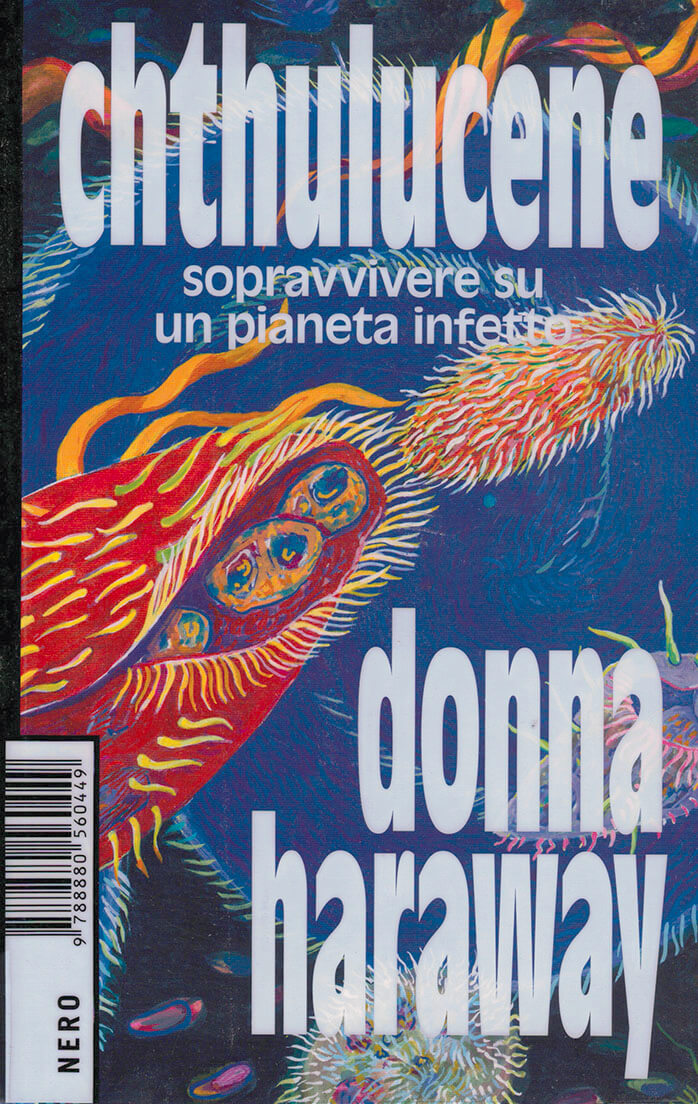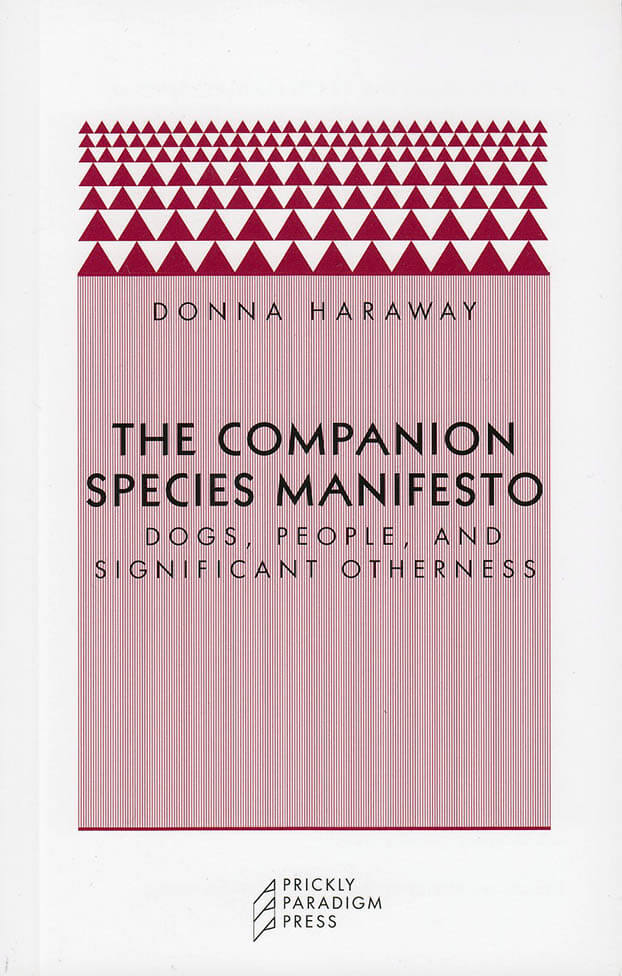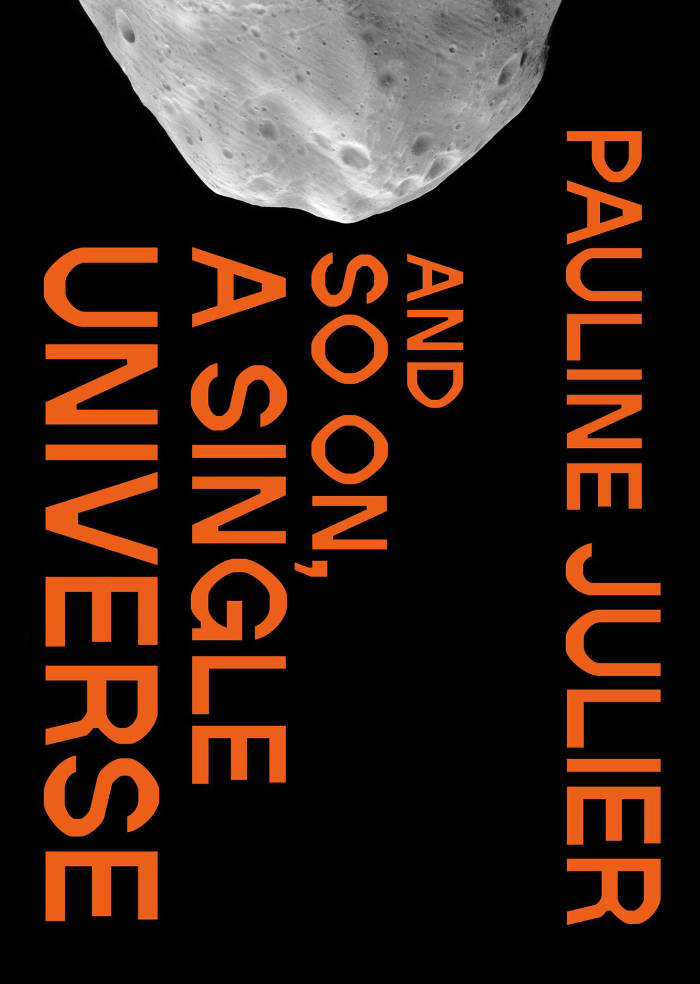Donna Haraway
Donna Haraway

CHTHULUCENE
Italian edition
Cosa succede quando il genere umano, dopo aver irrimediabilmente alterato gli equilibri del pianeta Terra, smette di essere il centro del mondo? E nel pieno della crisi ecologica, che relazioni è possibile recuperare non solo tra individui umani, ma tra tutte le specie che il pianeta lo abitano? In questo testo denso ed emozionante, scritto in una lingua immaginifica che si ispira tanto alla fantascienza quanto alla grande lezione del femminismo radicale, Donna Haraway ci ricorda che tutto è interconnesso, tutto è contaminato, tutto ci riguarda. Contro i semplicismi delle discussioni sull’antropocene, Chthulucene immortala la centralità di Donna Haraway tra i più importanti e originali pensatori del nostro tempo.

The Companion Species Manifesto
The Companion Species Manifesto is about the implosion of nature and culture in the joint lives of dogs and people, who are bonded in significant otherness. In all their historical complexity, Donna Haraway tells us, dogs matter. They are not just surrogates for theory, she says; they are not here just to think with. Neither are they just an alibi for other themes; dogs are fleshly material-semiotic presences in the body of technoscience. They are here to live with. Partners in the crime of human evolution, they are in the garden from the get-go, wily as Coyote. This pamphlet is Haraway's answer to her own Cyborg Manifesto, where the slogan for living on the edge of global war has to be not just cyborgs for earthly survival but also, in a more doggish idiom, shut up and train.
Donna Haraway is professor emerita in the History of Consciousness Department at the University of California, Santa Cruz.
And more

And so on, a single universe
A collection of Pauline Julier’s art that expands from the terrestrial to the cosmos to comment on our place in the universe.
At the interface of documentary and fiction, the multimedia works collected in Pauline Julier take us on a dizzying journey through space and time. Julier’s art travels through the geological ages of planet Earth, through different histories, natural disasters, and the Anthropocene’s paradigm shifts and into outer space. Her background in political science and photography is reflected in her work: looking into the past and the future, she investigates topical questions about our unlimited use of natural resources, escapism, and the colonization of space.
Conceived and designed as a work of art in its own right, this volume offers a comprehensive insight into Julier’s art and thought through a conversation with eminent scholar of science and technology studies Donna Haraway alongside contributions by curator Céline Eidenbenz, anthropologist, and writer Nastassja Martin, and art historian, curator, and author Chus Martínez.
Edited by Céline Eidenbenz and Sarah Mühlebach.
With Contributions by Donna Haraway, Pauline Julier, Nastassja Martin, and Chus Martínez.

After Sex
Who decides what happens after sex? The last decade has seen many significant changes to the laws governing women’s reproductive rights around the world, from liberalisation in Ireland to new restrictions in the USA. After Sex offers personal and political perspectives from the mid-20th century to the present day, setting feminist classics alongside contemporary accounts. These essays, short stories and poems trace the debates and tell the stories; together, they ask us to consider what reproductive justice might look like, and how it could reshape sex.
The writers pay special attention to people — both fictional and real — who have sought control over their sexual lives, and the joy, comedy, difficulties and disappointments that entails. But above all, After Sex testifies to the power of great writing to show us why that freedom is worth pursuing — without shame and without apology.
With contributions from:
Lauren Berlant, Joanna Biggs, Edna Bonhomme, Gwendolyn Brooks, Beverley Bryan, Stella Dadzie and Suzanne Scafe, Storm Cecile, Lucille Clifton, Rachel Connolly, T.L. Cowan, ’Jane Does’, Maggie Doherty, Nell Dunn, Andrea Dworkin, Anne Enright, Deborah Friedell, Tracy Fuad, Kristen Ghodsee, Vivian Gornick, Donna Haraway, bell hooks, Barbara Johnson, Jayne Kavanagh, Lisa Hallgarten and Angela Poulter, Jamaica Kincaid, Patricia Knight, R.O. Kwon, Ursula K. Le Guin, Natasha Lennard, Sophie Lewis, Audre Lorde, Amelia Loulli, Erin Maglaque, Holly Pester, Adrienne Rich, Denise Riley, Sally Rooney, Loretta J. Ross, Madeleine Schwartz, SisterSong, Sophie Smith, Annabel Sowemimo, Amia Srinivasan, Keeanga-Yamahtta Taylor, Judith Jarvis Thomson, Alice Walker and Bernard Williams.

More-than-Human
Lucia Pietroiusti, Marina Otero Verzier and 1 more
The More-than-Human reader brings together texts that reflect on the state of post-anthropocentric thinking today, by writers from a wide range of disciplines. Focusing on the ecologies and technologies of climate injustice and inequalities, as well as the destructive structures lurking within anthropocentrism, More-than-Human proposes complex entanglements, frictions, and reparative attention across species and beings.
Thinking past the centrality of the human subject, the texts that compose this reader begin to imagine networks of ethics and responsibility emerging not from the ideologies of old, but from the messy and complex liveliness around and beneath us.
Rather than attempting to be a comprehensive compendium on the topic (which would be virtually impossible), More-than-Human provides a cross-section of the breadth and vitality of a literary, scientific, and conceptual milieu where multiple strands of work intersect even as they are frequently regarded as belonging to separate disciplinary discourses.
Contributors: Stacy Alaimo, Ramon Amaro, Karen Barad, Rosi Braidotti, Octavia Butler, Georges Canguilhem, Marisol de la Cadena, NASA History Department, Silvia Federici, Scott F. Gilbert, Édouard Glissant, Jack Halberstam, Donna Haraway, Myra J. Hird, Kristina Lyons, Patricia MacCormack, John T. Maher, Michael Marder, Timothy Mitchell, Reza Negarastani, Jussi Parikka, Elizabeth Povinelli, Paul B. Preciado, María Puig de la Bellacasa, Filipa Ramos, Isabelle Stengers, Elly R. Truitt, Anna L. Tsing, Eduardo Vivieros de Castro, Jason Wallin, Kathryn Yusoff and Joanna Zylinska.

Manifestly Haraway
Electrifying, provocative, and controversial when first published thirty years ago, Donna Haraway's "Cyborg Manifesto" is even more relevant today, when the divisions that she so eloquently challenges—of human and machine but also of gender, class, race, ethnicity, sexuality, and location—are increasingly complex. The subsequent "Companion Species Manifesto," which further questions the human-nonhuman disjunction, is no less urgently needed in our time of environmental crisis and profound polarization.
Manifestly Haraway brings together these momentous manifestos to expose the continuity and ramifying force of Haraway's thought, whose significance emerges with engaging immediacy in a sustained conversation between the author and her long-term friend and colleague Cary Wolfe. Reading cyborgs and companion species through and with each other, Haraway and Wolfe join in a wide-ranging exchange on the history and meaning of the manifestos in the context of biopolitics, feminism, Marxism, human-nonhuman relationships, making kin, literary tropes, material semiotics, the negative way of knowing, secular Catholicism, and more.
The conversation ends by revealing the early stages of Haraway's "Chthulucene Manifesto," in tension with the teleologies of the doleful Anthropocene and the exterminationist Capitalocene. Deeply dedicated to a diverse and robust earthly flourishing, Manifestly Haraway promises to reignite needed discussion in and out of the academy about biologies, technologies, histories, and still possible futures.
Donna J. Haraway is distinguished professor emerita in the History of Consciousness Department at the University of California, Santa Cruz, where she is also affiliated with the departments of anthropology, feminist studies, environmental studies, and film and digital media. She is an active participant in UCSC's Science and Justice Research Center and the Center for Cultural Studies.
Published 2016